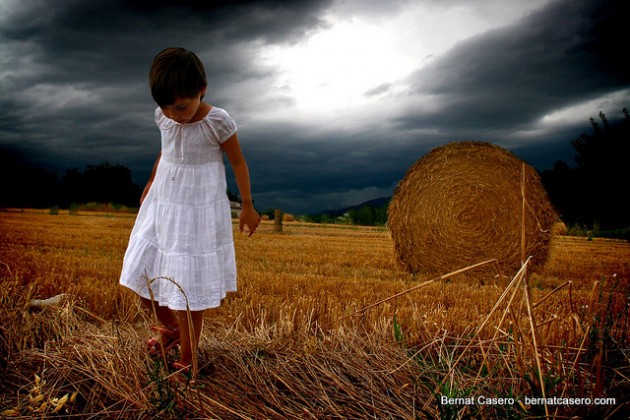Author Archives: Julie Sugar
June 14, 2013 by Julie Sugar
For My Father:
With a Suitcase in Each Hand

“They are Americans,” my father often explained about my brother and me while we were growing up. It was a pronouncement delivered in his thick Hungarian accent, and bestowed upon us with a jumble of love and pride, distance and dissonance. I remember that after long dinners at other people’s houses, with food we didn’t like, my brother and I would want to go to McDonald’s. The proof seemed to be in the pudding (or in the fries): my brother and I were quite different from our European father, who disapproved of our preference for fast food. But what strikes me now that I’m older is that usually our dad agreed, drove us to McDonald’s, and bought us hamburgers. He wanted us to be happy, and he wanted us to be Americans.
My parents escaped Communist Hungary in 1976, and settled in New Jersey. Today, my father’s stories from his first years as a new immigrant are as well-worn and beloved as a favorite song. There was the time he was driving back with a new hairdryer for my mother; he saw a sign that said “U-Turn Next”, and turned around because he didn’t know what the word “next” meant. (My mother wryly remarked in Hungarian, when my dad finally got home, “My hair is dry now.”) Or there was the time he arrived at a house for dinner and asked if he could see their closet. His hosts were confused, but obliged. Then it was my father who was confused—in Hungarian, a common word for “bathroom” is “vécé”, which is the Hungarian pronunciation of “WC”, which comes from the English phrase “water closet”… which is not used in the United States. He needed to pee and was looking at a bunch of hangers and coats.
When I was five, my dad—a chemical engineer—was relocated to a new position in Houston. My mother had recently and suddenly passed away, and so it was the three of us who moved: me, my brother, and my father. As I grew up, the impression I formed of my father was that being an immigrant means you don’t completely fit in either place; you are a foreigner in your new country, and you’ve also become a foreigner in the country from which you came. Once when my dad visited Hungary, he wanted to buy some grapes from a man selling them on the street. When my dad asked whether the grapes had seeds (since he was used to the variety in the States), the man snapped, “Of course they have seeds, you idiot!”
The way my father has always described his sensation of displacement in both places is that he’s “internationally homeless.”
- 3 Comments
May 10, 2013 by Julie Sugar
For the Women Who Mother Me
When I was in second grade, I didn’t want to make a Mother’s Day card with the rest of the kids in class. My teacher, a kind person who I’m sure meant well, insisted. “You can write to her in heaven,” she said. I thought it was a stupid idea, and refused again.
My mom died when I was five years old. My father remained single throughout my childhood, and only very recently–to my twenty-something surprise–did he fall in love again, getting married at City Hall to his lovely wife one year ago, at sixty-five. Because he raised me and my brother by himself, I grew up without a mom or a stepmom. The absence was felt keenly and mundanely at the same time: I internally corrected teachers who told us to take permission slips home to our “mom and dad”, I answered small talk questions about my parents with the phrase “my family” (“my family moved here when I was five”), and I cringed at every TV show, movie, or book that used the backstory of a dead mom to explain a character’s troubled emotional landscape.
When I was a freshman in college, I called my father to let him know that I would be attending Yom Kippur services for the first time. He told me that there was a special prayer read by people who don’t have a mother, and asked me to find it and read it. I was moved that Judaism–my own religion, and one I knew next to nothing about–had such a prayer. Today, I read it four times a year: Yom Kippur, Passover, Sukkot, and (right around the corner now) Shavuot. Sometimes I cry. Usually, I don’t. In many ways, I’m accustomed to the idea that I don’t have a mom.
- 2 Comments
September 20, 2012 by Julie Sugar
Down the Rabbit Hole: Gifts from a Religious Crisis
“I love Shabbos. I know I’m struggling with the details, but I love the way time spreads like a picnic blanket. I like the meals, I like going to shul, I like having time to nap, to take a walk, to see a friend. I like the community and the camaraderie. I worry about my new habits. I worry that Shabbos will be lost to me.”

http://www.flickr.com/bruceley
A little over a year ago, much of my life was shifting wildly or was already shattered: my relationship, my living situation, my health—and my religious observance. I had been secretly breaking Shabbos for a while, and finally acknowledged to myself that I was no longer committed to halakha, traditional Jewish law.
And so I gave up halakha, and fell down the rabbit hole.
1. Secret Shabbos Superpowers – It felt, at first, like I had entered a secret society of superheroes. Want to be in New Jersey for Shabbos dinner and the Upper West Side for Shabbos lunch? With the magic of public transportation I can travel easily from one place to the next! Waiting a long time for a Shabbos guest who is mysteriously missing? Not to fear—the Shabbos guest has secret Shabbos superpowers too, and with the use of text messaging I can find out that she is sick and staying at home!
2. Crying on the Subway – One Friday night, I was on the train coming back from seeing my family. I had recently returned from traveling and my father was about to travel himself; that one evening was my only chance to see him for weeks. I didn’t regret my choice, exactly, but the feeling of not observing Shabbos was as palpable and painful as the feeling of struggling to keep it. I cried on the subway as I realized that there would be no escape from figuring it all out, and finding peace.
- 10 Comments
May 25, 2012 by Julie Sugar
Between All and Nothing: A Blessing for a Running Catch of the Torah
 Before I skipped the holiday of Shavuos last year, I secretly broke Shabbos for months. I would check my BlackBerry in the bathroom, reading emails and Facebook but never responding. Eventually I grew bolder and started Gchatting with two or three friends on Shabbos—and blocking everyone else. By Shavuos, I was reeling from a major transition in my life, and decided to no longer pretend to be observant of halakha, traditional Jewish law. I had grown up totally secular and observing Shabbos and holidays is still far from second nature to me; as I scaled one emotional mountain, I slid down the other, and took a break.
Before I skipped the holiday of Shavuos last year, I secretly broke Shabbos for months. I would check my BlackBerry in the bathroom, reading emails and Facebook but never responding. Eventually I grew bolder and started Gchatting with two or three friends on Shabbos—and blocking everyone else. By Shavuos, I was reeling from a major transition in my life, and decided to no longer pretend to be observant of halakha, traditional Jewish law. I had grown up totally secular and observing Shabbos and holidays is still far from second nature to me; as I scaled one emotional mountain, I slid down the other, and took a break.
Shavuos this year has been looming as a personal deadline of sorts. It is the holiday where the children of Israel stood at the foot of Mount Sinai (speaking of mountains) and received the Torah from God. They didn’t just passively receive the Torah, either—they committed to it, to all of the commandments, to Shabbos, to the holidays, the whole shebang. So it feels like a fitting time to recommit myself to halakha, both in terms of the significance of the day and the fact that a whole year has gone by since my life was turned upside down. I do like anniversaries; I like the cycle of the calendar, of marking special days—even, or especially—the difficult ones.
- 3 Comments
May 14, 2012 by Julie Sugar
Orthodox Judaism, My Soul is Sick with Love for You

http://www.flickr.com/simplyboaz
On Thursday, the Orthodox Union issued a statement publicly opposing the President’s recent stance on same-sex marriage. I read it that afternoon, got up from my desk, walked into the office bathroom, and cried. If the OU does indeed represent Orthodox Judaism, as they assert, the path towards a more honorable Orthodoxy seemed too long. I conceded to myself that feminism or LGBTQ inclusion within the movement really is an oxymoron, a fantasy. It was time for me to finally break up with Orthodox Judaism.
Yet on Shabbos morning I was back in my Orthodox synagogue, holding the Torah and reading a prayer out loud on behalf of the congregation.
Participating in that part of the service—either reading aloud the prayer for the American government, for the State of Israel, or sometimes both—has been bittersweet because it is an innovative but limited opportunity for women to have an increased role in the ritual space. See, I believe that increased sensitivity and inclusion within the framework of halakha, traditional Jewish law, is not only feasible, it is a communal obligation. While this year I became less observant again (I grew up completely secular), and I haven’t currently been identifying as Orthodox, I have stayed in an Orthodox community because I feel compelled to work from within the movement to increase opportunities for women in the ritual space while remaining within the contours of halakha. Thankfully I am not the only one thus compelled; there are other people, entire organizations, and communities like mine working towards a shared vision of an ever-improving and increasingly inclusive Orthodoxy.
- 11 Comments
December 19, 2011 by Julie Sugar
Immerse and Emerge: Revisiting the Mikvah

http://www.flickr.com/rose770
A new year is approaching, and winter is settling in. As we prepare to jump into 2012, and think about what sort of resolutions we will be making, I can’t help but reflect on how the Jewish year began a few months ago, and the specific blessings I sent to myself then—while underwater in a mikvah in Crown Heights, Brooklyn.
When I was married, I struggled with going to the mikvah. I struggled with having the mikvah attendant watch me immerse in the waters of the ritual bath and then deem me kosher. (I realize that she was declaring my dips into the water kosher, and not my actual self, but having someone sing-song “kosher!” over you blurs the lines of how the experience feels.) Why did an outside institution, and another human being, get to have a say in the cycle of my most personal relationship? I resisted the structure. I often wished that I had access to a lake, where I could quietly go by myself under the moonlight, or I half-jokingly wondered if I could just take a really long bath at home.
This particular struggle was over—and others began—when my husband and I split up over the summer. Right before Rosh Hashanah, I received the get, the Jewish bill of divorce. I barely observed Rosh Hashanah this year; I had a meal with a friend with honey and figs on the table; I bought a ticket in advance but didn’t go to shul. I napped, a lot. I felt guilty and thrilled and guilty I felt thrilled.
- 3 Comments
October 26, 2011 by Julie Sugar
Skipping Shabbos and Drawing Lines

http://www.flickr.com/incendiarymind
It’s 4pm, and I am sitting with my friend at a T.G.I. Friday’s in Philadelphia. I have chosen not to think of the day itself as Shabbos. I am skipping Shabbos day, you see; it’s just Saturday.
We’re looking to split an appetizer and then a dessert. She points out something on the menu, and I see that (like almost everything else on the menu) it includes meat. “Oh, I can’t eat that,” I say. She knows that I don’t eat non-kosher meat, but didn’t realize that particular dish wasn’t vegetarian.
I hesitate.
Because what’s the difference when my observance level is in flux lately, anyway? Where is the line? Why don’t I eat non-kosher meat? I decide to not order a dish with meat in it: I don’t want to deal with whatever feelings of guilt I may feel while eating it, or afterwards. Better to explore one big Jewish challenge at a time, starting with Shabbos—one week at a time.
See, I love Shabbos, I really do. I don’t want to give it up. But it is unclear now what the shape of that day will look like… where the lines are. The line used to be halakha, Jewish law, but I am no longer convinced that is the right metric for me for Shabbos, or for the Jewish life I want to live. Frankly, I’m not sure it ever was. I just don’t know, though. Picking and choosing is a slippery slope.
- 5 Comments
 Please wait...
Please wait...
